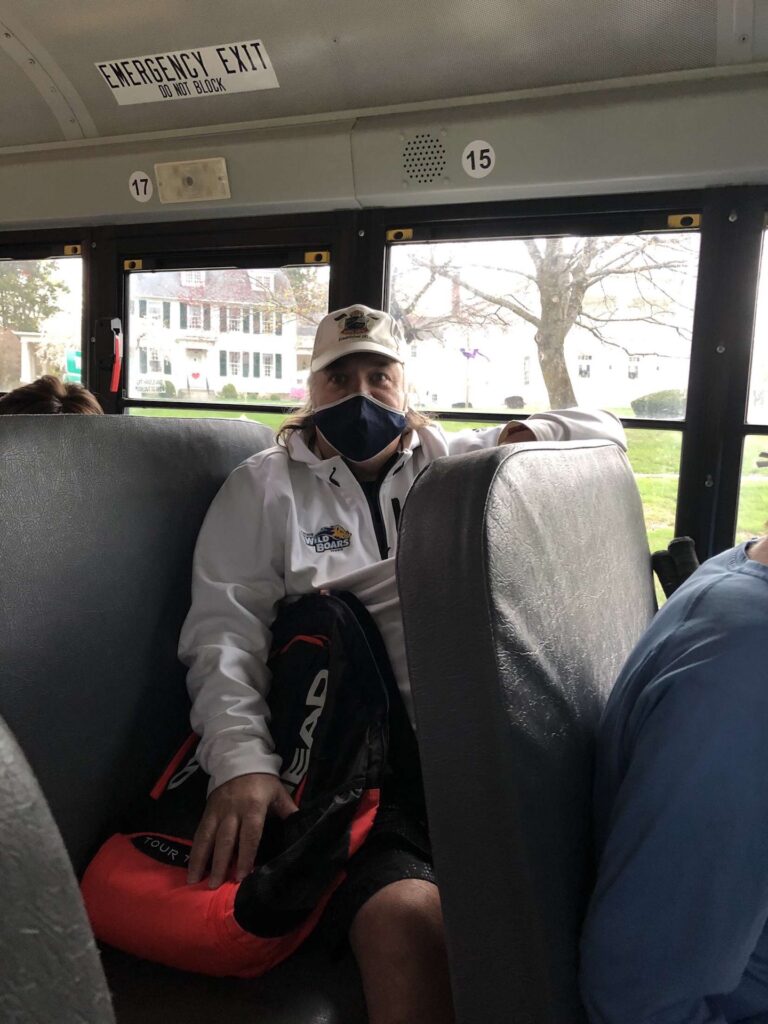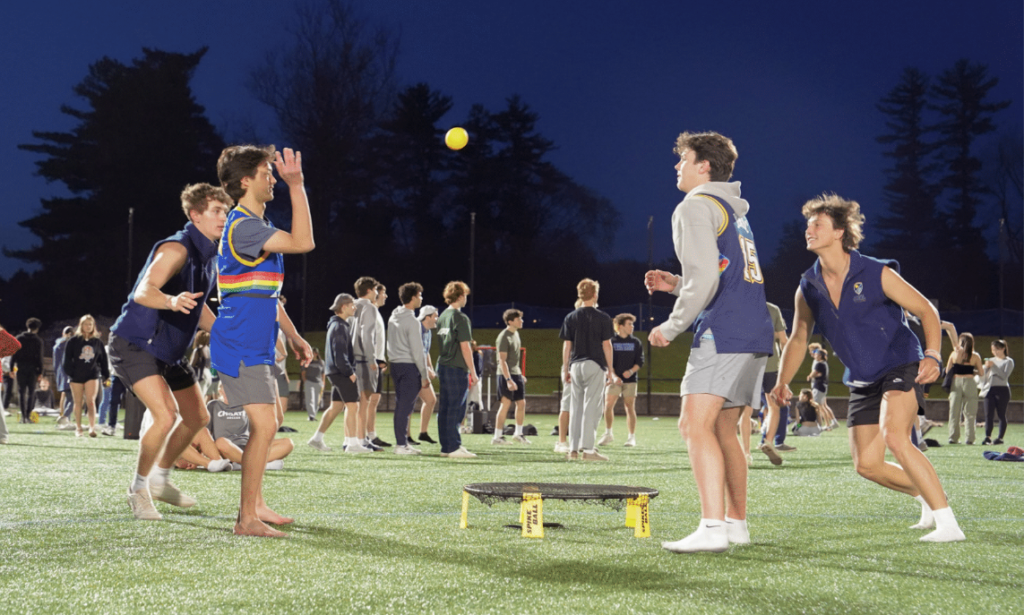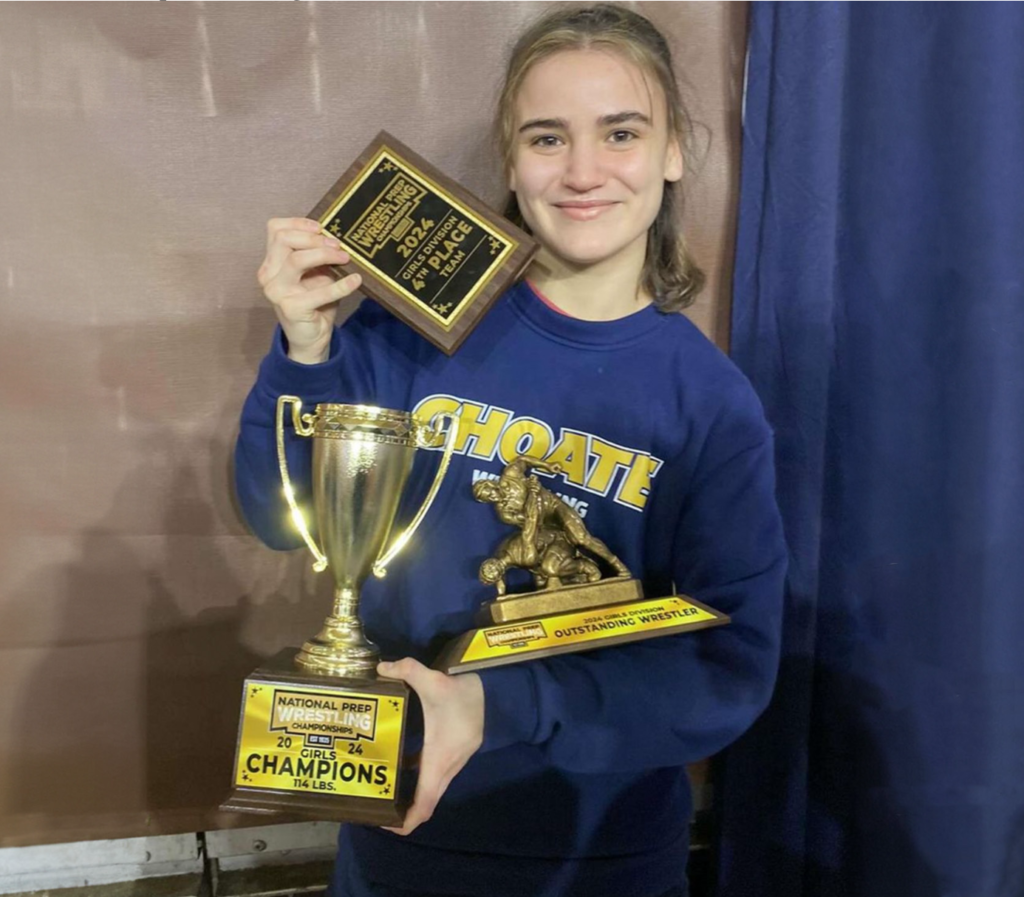
Photo by Tyler McLemore/The Choate News
Mr. Ned Gallagher is an HPRSS teacher, Varsity Cross Country and Tennis coach, and former Athletic Director. Mr. Gallagher has been an icon in the Choate community for many decades — as evidenced by the countless students who bear his autographed T-shirts. Mr. Gallagher has led many international trips with the Choate Boys’ Tennis and Squash teams. And, during his tenure as Athletic Director, Mr. Gallagher implemented the important change of the Choate mascot from the “Judges” to the “Wild Boars.” This week, Bo Goergen ’22 sat down to talk with Mr. Gallagher and learn more about his experience coaching at Choate.
Bo Goergen: What have you learned from being a coach at Choate?
Ned Gallagher: I learned over time that if you shift your focus from winning and losing, and you focus on teaching the fundamentals and teaching good attitudes about the sport, the wins and losses take care of themselves.
BG: What is the most rewarding part of being a coach?
NG: The most rewarding part of being a coach is seeing improvement and watching kids who might be brand new to a sport take it as far as they can go and get really good at it.
BG: You do some unorthodox things as a coach, like meditation with your cross-country team. What would you say is the most original thing you do, and how does it help the team?
NG: I don’t know how original it is, but what I do think is that at a school like Choate, kids need rituals and routines that make them feel tied into something bigger than themselves, and athletic teams are one good way to do that. The more rituals you can build into the framework of your daily or weekly practices, the more effective the program can be. For example, in cross country, we meditate because it tends to work on a day where we wouldn’t be doing much else otherwise. Once I started doing it, it became an expectation, and I would hear about it if I didn’t do it. So, it builds its own weight and meaning more than I ever intended for it to.
BG: You have taken some pretty exciting trips with your teams throughout your Choate career. What is your most memorable trip, and how did this trip affect team bonding?
NG: We went to China once. That was pretty far to go for a tennis team. We had a team captain who lived outside of Shanghai, and the family invited the team over. I thought, if we were going to China, we might as well see the Great Wall, the Forbidden City, and all those sites. We went to Beijing for three days, then Shanghai for a week. Being in such a different place helped forge bonds, and exploring a different culture and environment was pretty cool. Also, we have done five tours with the squash team in the U.K. These trips were always an excuse to do cultural and school visits wrapped around a schedule of matches.
BG: What is the best advice you have for Choate athletes?
NG: It depends on whom you are talking about. I have advice that I always gave to postgraduates which was: don’t limit yourself to being defined as an athlete. You may think you came here to play a sport, but it would be a mistake if that defined your social group and your identity on campus. You are here to be a sixth former, so I wouldn’t even introduce yourself as a postgraduate. Also, try something new that they didn’t have at your old school, like trying out for the Maiyeros or taking an art history class. This will really open Choate up to you in new ways, and you shouldn’t be embarrassed to be a good student. For everyone, you want to treat your sport like the way you take your classes. Take it seriously, focus on improvement, talk about how you can get better at something, pick your coach’s brain, and look at it as part of a bigger journey in life.
BG: What is your favorite part about athletics at Choate?
NG: I think the most remarkable thing is getting to know students that you teach or maybe live with in another context — they get to know you as a teacher, coach, and adviser in another dimension. What makes a school like Choate work is that teachers and kids don’t just go home at 3:30 p.m., and you see each other the next day in the morning, but rather you see people in the dining hall, you see them on the athletic field, you see them in all these different contexts, and that is a much richer experience overall. This is just as true for faculty getting to know kids as it is for kids getting to know faculty.



